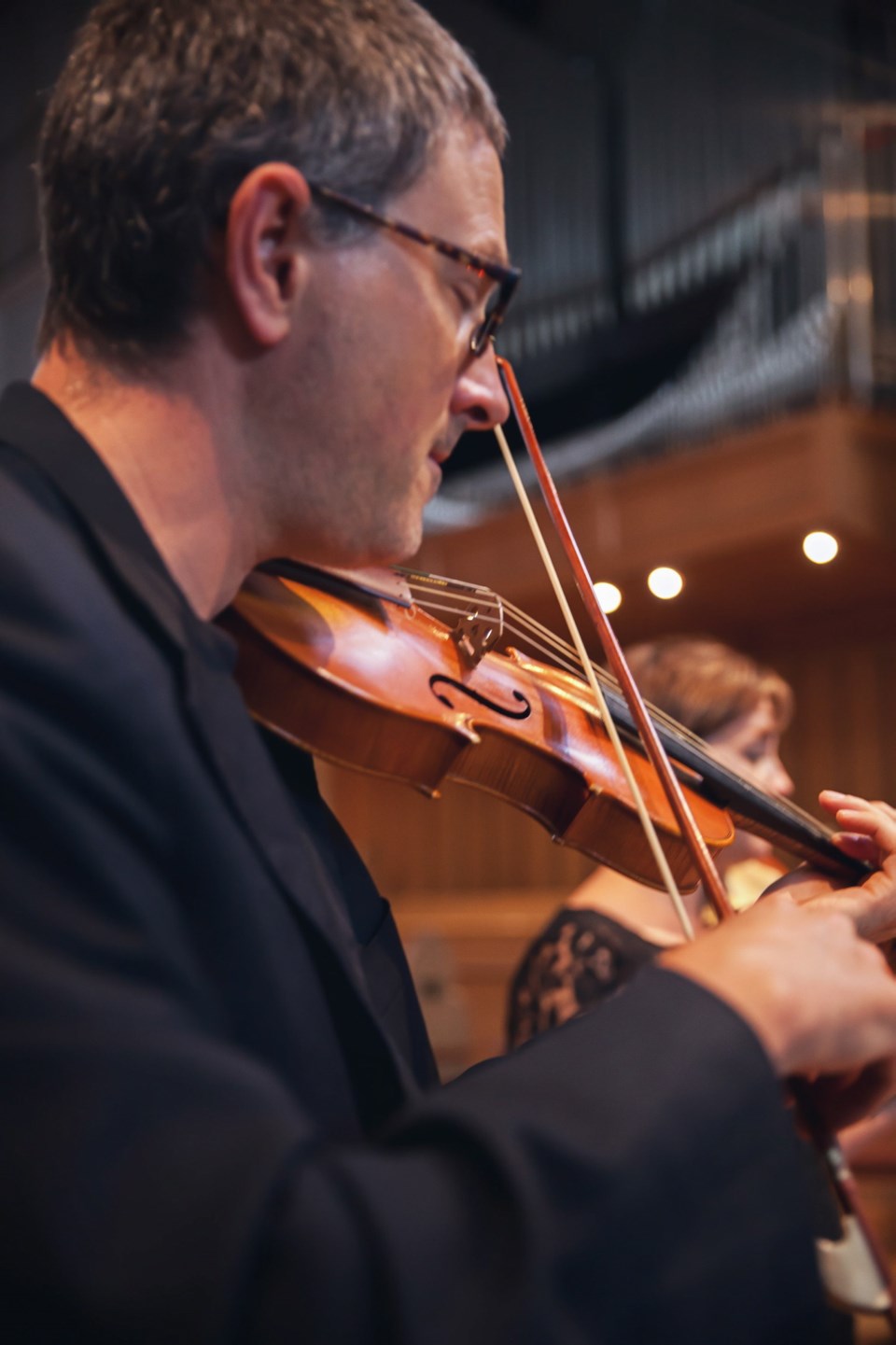On Saturday, the period-instrument duo comprising violinist Paul Luchkow and keyboard player Michael Jarvis will present their second collaboration with viola da gamba virtuoso Sam Stadlen, a member of the acclaimed British viol consort Fretwork (7:30 p.m., Chapel of the New Jerusalem, Christ Church Cathedral, $25, student rush $5; pre-concert talk 6:45; christchurchcathedral.bc.ca).
The program, typical of the duo’s fondness for novel repertoire, focuses on Althorp, the stately home and estate in Northamptonshire, England, that was built in 1508 and ever since has been the seat of the noble Spencer family, whose members included Diana, Princess of Wales.
Althorp was once a hive of artistic activity that included a late flowering of interest in the viola da gamba, a venerable instrument that had mostly died out by the late-18th century, but in England was still played by elite enthusiasts, including the composer Carl Friedrich Abel, the painters Joshua Reynolds and Thomas Gainsborough and many aristocrats.
One of the latter was Lavinia Spencer (1762-1831), wife of the 2nd Earl Spencer. She must have been an impressive gambist, to judge from a set of three sonatas for violin, gamba and fortepiano composed by Tommaso Giordani, a Neapolitan composer active in England and Ireland, and published in London in 1782 with a dedication to “the Right Honorable Lady Viscountess Althorp.” These substantial, innovative works are full of concerto-like virtuosity, including some very high gamba writing.
Saturday’s program will include the North American premières of two of these sonatas (the same performers will record all three this month for a Marquis Classics CD), along with attractive galant sonatas and trios spanning the years 1736-74 by other composers based in England: Michael Christian Festing, Antonín Kammel, James Lates and Stephen Paxton.
On Friday, the Victoria Chamber Orchestra, conducted by Yariv Aloni, will offer a program including two beautiful string serenades from the 1870s, by Dvorák and the Austrian composer Robert Fuchs (whom Brahms admired), as well as Gershwin’s first classical piece, Lullaby, composed when he was about 21 (7:30 p.m., First Metropolitan United Church, $20/$15, music students free; victoriachamberorchestra.org).
The Emily Carr String Quartet will launch its season with three performances of a program honouring the centenary of the end of the First World War and comprising three very diverse pieces all composed during the war years: Josef Suk’s Meditation on the Old Czech Hymn St. Wenceslas, Bartók’s String Quartet No. 2 and Elgar’s String Quartet in E Minor, Op. 83 (Saturday, St. Elizabeth’s Church, Sidney; Oct. 24, Church of St. John the Divine; Oct. 30, Church of St. Mary of the Incarnation, Metchosin; all 7:30 p.m.; $25, students free; emilycarrstringquartet.com).
Also on Saturday will be the debut of the Johannes Trio, comprising Keith MacLeod, the Victoria Symphony's outstanding principal clarinetist, and two young musicians, cellist Rosanna Butterfield and pianist Jannie Burdeti (7:30 p.m., Dave Dunnet Community Theatre, Oak Bay High School, $20). They will perform two trios, Beethoven’s early Op. 11 and Brahms’ autumnal Op. 114, the first of four chamber works with clarinet he wrote in his final years. (It was Brahms who gave the new ensemble its name — Joe Trio was taken, MacLeod says.)
Next Wednesday, the Victoria Chamber Players, directed by oboist Alexandra Pohran Dawkins, will launch a new series at the recently renovated St. George’s Anglican Church (3909 St. George’s Lane), in Cadboro Bay (7:30 p.m. $20/$15). Pohran will be joined by seven colleagues (oboe, clarinets, horns, bassoons) drawn from the Victoria Symphony, the Naden Band and the University of Victoria, in octets from the late 18th and early 19th centuries, when wind-band music was fashionable at European courts. The program comprises original works and arrangements by Austrian and Bohemian composers: Mozart, Antonio Salieri, Franz Krommer and Georg Druschetzky.
Also next Wednesday, British organist David Briggs will offer a lecture-demonstration on the art of transcription in Christ Church Cathedral’s organ loft (6 p.m., accessible only by stairs; christchurchcathedral.bc.ca). This event, limited to 50 seats, is open only to those also attending Briggs’ performance of Mahler’s Resurrection Symphony the following day (concert $25, with lecture-demonstration $50).



